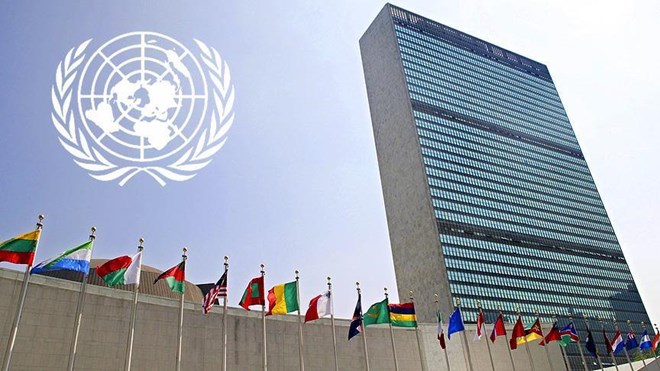UN appeals for record $22.2B for humanitarian aid

By Reuters
The United Nations launched a record humanitarian appeal on Monday, asking for $22.2 billion in 2017 to help almost 93 million people hit by conflicts and natural disasters.
More than half of the money will be used to address the needs of people caught up in crises in Syria, Yemen, Iraq and South Sudan, the U.N. Office for the Coordination of Humanitarian Affairs (OCHA) said.
The appeal followed a trend of steady increases that have seen requests for funds grow almost three-fold from $7.9 billion in 2011.
“The scale of humanitarian crises today is greater than at any time since the United Nations was founded,” U.N. humanitarian chief Stephen O’Brien said in a statement.
“Not in living memory have so many people needed our support and solidarity to survive and live in safety and dignity”.
Several countries, including Afghanistan, Burundi, the Democratic Republic of Congo and Somalia have issued emergency appeals almost annually for the past 25 years and some faced worsening crises in 2017, the U.N. said.
In 2016, the U.N. sought $22.1 billion, having initially appealed for $20.1 billion but a shortfall in donations meant the appeal was only 51 percent funded as of Nov. 30.
“Sadly, with persistently escalating humanitarian needs, the gap between what has to be done to save and protect more people today and what humanitarians are financed to do and can access is growing ever wider,” OCHA head O’Brien wrote.
As humanitarian needs continue to rise, aid workers are increasingly at risk of targeted attacks and their efforts are hampered by reduced access, growing disrespect for human rights and flagrant violations of international humanitarian law, O’Brien said.
In Syria, humanitarian needs were expected to “grow exponentially” if no political solution was found to the nearly six-year-old conflict, with 13.5 million people requiring aid.
In Afghanistan, where government forces are struggling to contain a Taliban insurgency, 1.8 million people, mostly children, will require treatment for acute malnutrition next year, according to the appeal.
The political crisis in Burundi will see the number of people in need of urgent support triple to about three million.
The U.N. last week doubled its appeal for northeast Nigeria to $1 billion, hoping to reach nearly 7 million people hit by the Islamist militant Boko Haram insurgency, including 75,000 children at risk of starving to death.
“Funding in support of the plans will translate into life-saving food assistance to people on the brink of starvation in the Lake Chad Basin and South Sudan,” said O’Brien.
Long-term conflicts resulted in higher costs partially because falling state revenues required aid agencies to offer healthcare, education and other services traditionally provided by governments, said Paul Knox Clarke, head of research and communications at ALNAP, a humanitarian action learning network.
“You have a situation where the humanitarian funding is basically this sort of welfare service provision,” he told the Thomson Reuters Foundation.